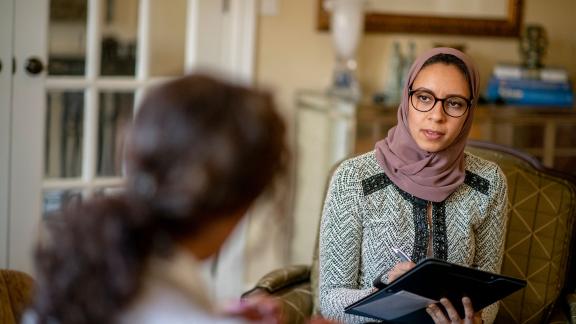In the fight against COVID-19, NHS diversity is our strength

Time to look more closely at the impact of COVID-19 on staff across the NHS and local communities, write Joan Saddler and Wayne Farah.
We are all in this together, they say.
We know from Michael Marmot that COVID-19 is “exposing the fault lines in society. Prince and pauper may be affected in the early stages, but as the pandemic proceeds, social distancing reveals inequalities. That’s what the data shows."
The concern at the deaths among black and minority ethnic (BME) clinicians dealing with the crisis is now being reflected in the wider community. The Intensive Care National Audit and Research Centre reports that 35 per cent of almost 2,000 patients are BME, nearly triple the 13 per cent proportion in the UK population as a whole.
This is consistent with the emerging international data. In Chicago, 70 per cent of recorded deaths were from black residents, who make up 29 per cent of the population. In Milwaukee County, 50 per cent of cases and 81 per cent of deaths are African American, who are only 26 per cent of the population. And in Michigan, where 14 per cent of the population is black, African Americans make up 35 per cent of cases and 40 per cent of deaths.
With every week that passes, we’re seeing the devastating toll the virus is having on our BME colleagues as well as others – doctors, nurses and other healthcare professionals who have sadly lost their lives. We acknowledge this devastating and painful time for their families, friends and colleagues.
We know that of the 3 million people in high exposure jobs in the UK, most are women, many earning ‘poverty wages’ doing precarious work on part-time, temporary or zero-our contracts. In many sectors, including health and social care, BME and migrant women are hugely over-represented. In effect, this means low-paid, BME and migrant women currently putting their lives on the line to deliver vital care, having previously been told they are ‘low-skilled’ or undeserving of liveable wages or stable contracts.
So, how can we turn the tide? We’re working with NHS England and NHS Improvement to look in-depth at the issues and, crucially, what we can do, particularly on patient care.
We have long known that BME communities have worse health outcomes, and it could be predicted that overlaying a new disease like COVID-19 will exacerbate existing inequities. We need to work together to ensure the NHS responds to this reality and mitigates the very real risks. If we don’t, we will fail some of the very people who are sustaining the NHS in its moment of crisis and their communities.
As our colleague Jagtar Singh, chair of Coventry and Warwickshire Partnership NHS Trust, rightly points our: "In one of the most challenging times the NHS has ever seen, the time for unity, listening to staff and community concerns has never been greater. The outstanding commitment and compassion from our diverse workforce must be supported with a focus on unity for all staff and patients."
Healthy staff keeping diverse communities healthy is what will see us through – the diversity of the NHS is our strength.
Joan Saddler OBE is director of partnerships and equality at the NHS Confederation and co-facilitator of the organisation’s BME Leadership Network. Wayne Farah is co-facilitator of the BME Leadership Network.
View NHS Employers' COVID-19 guidance for the NHS workforce.



